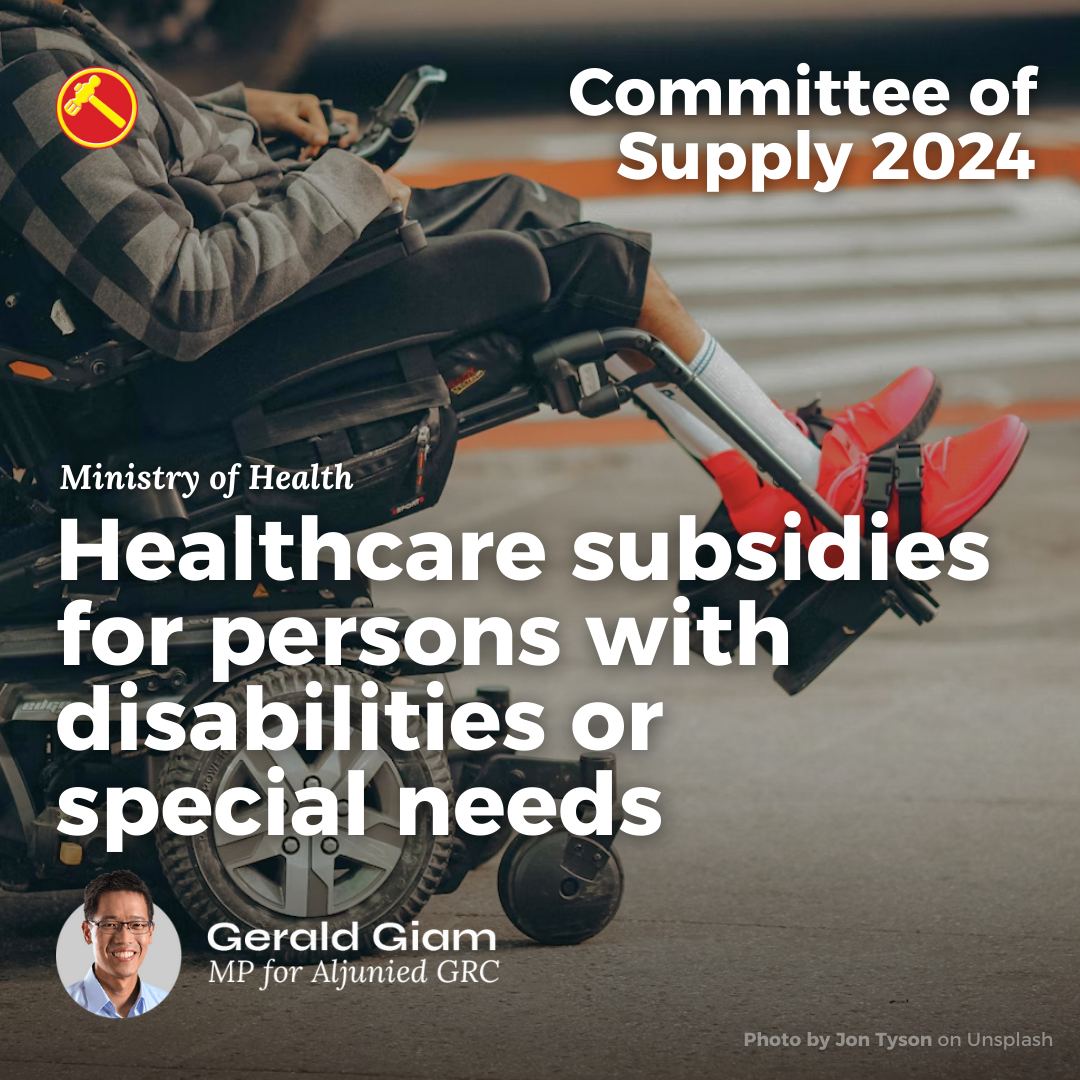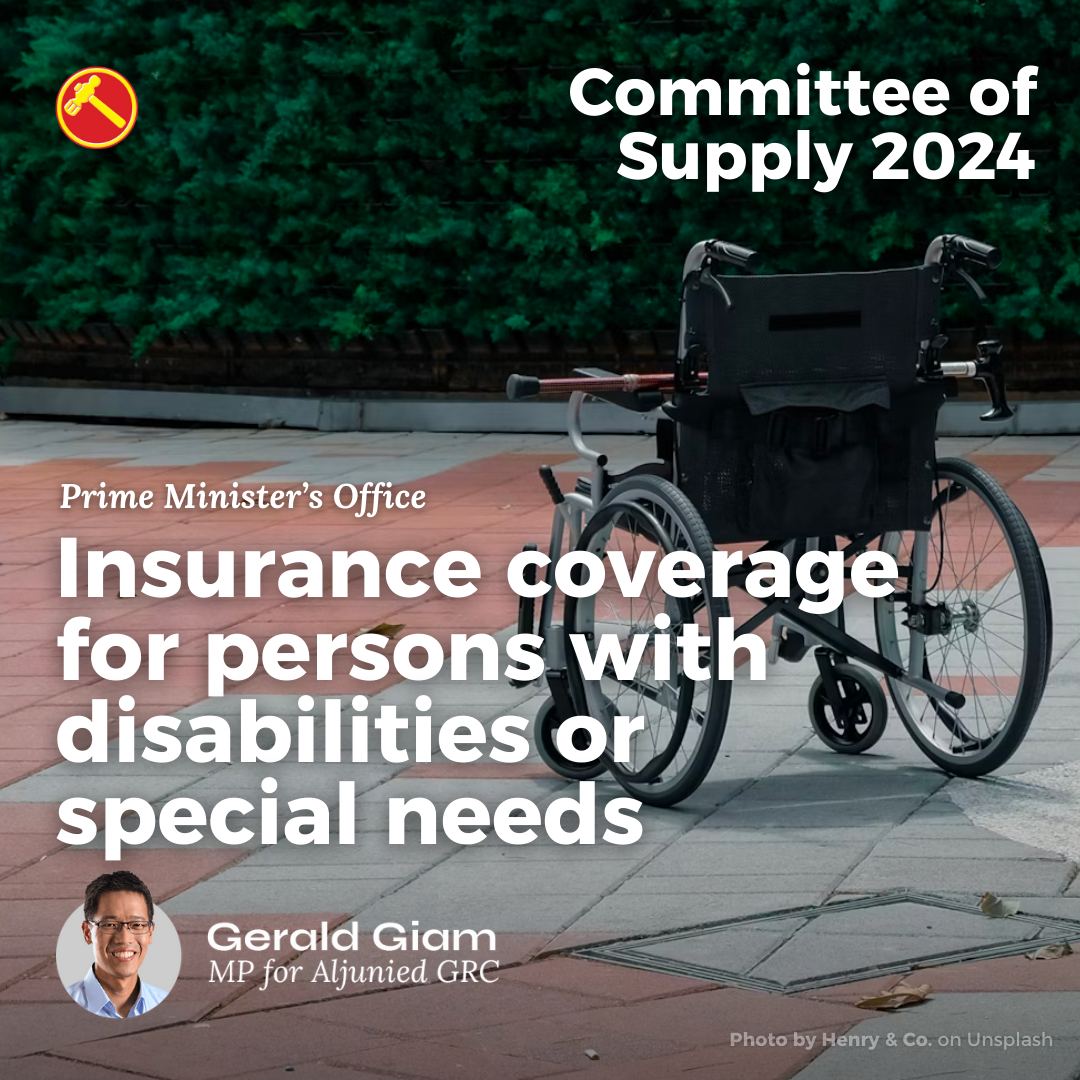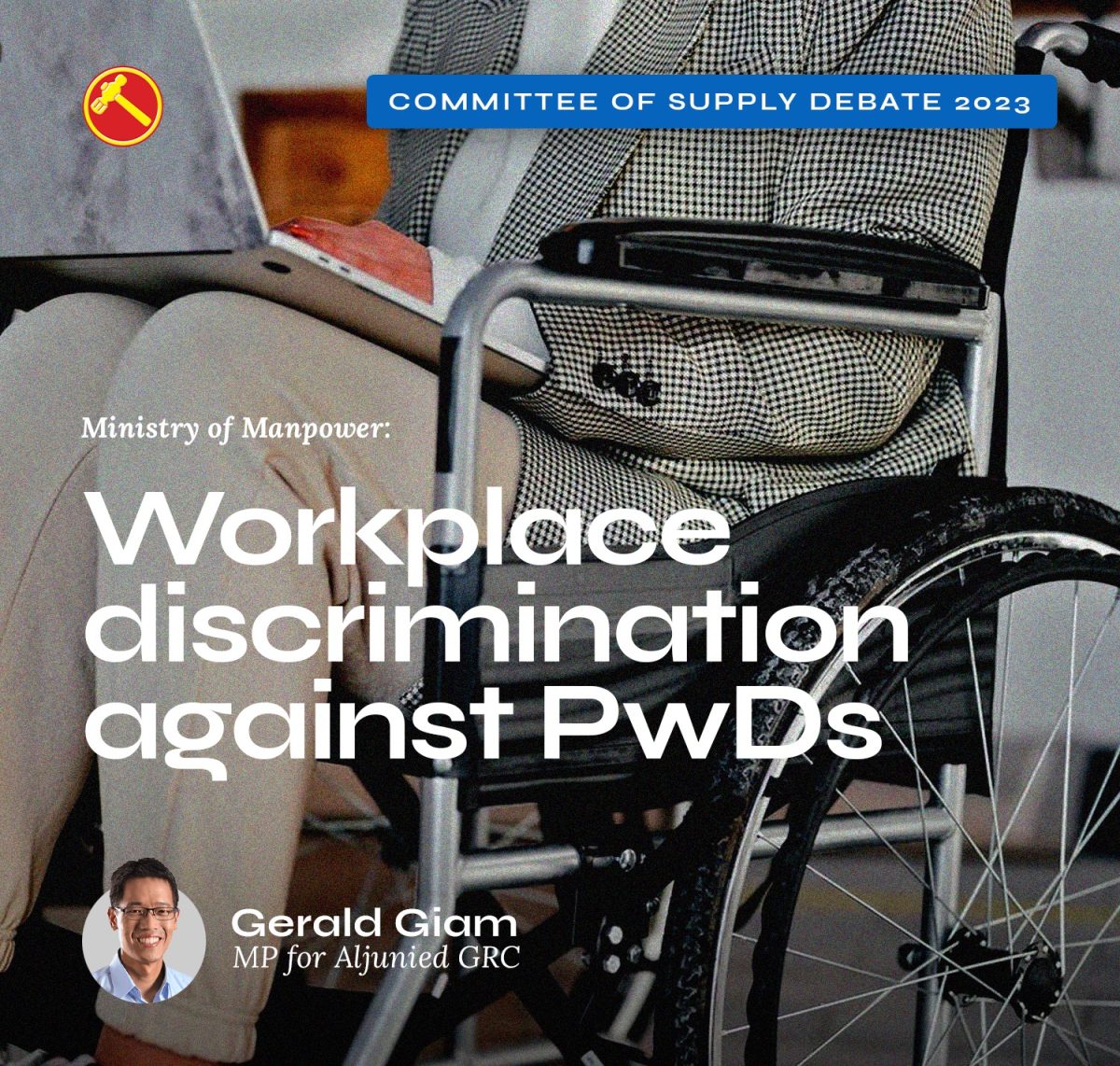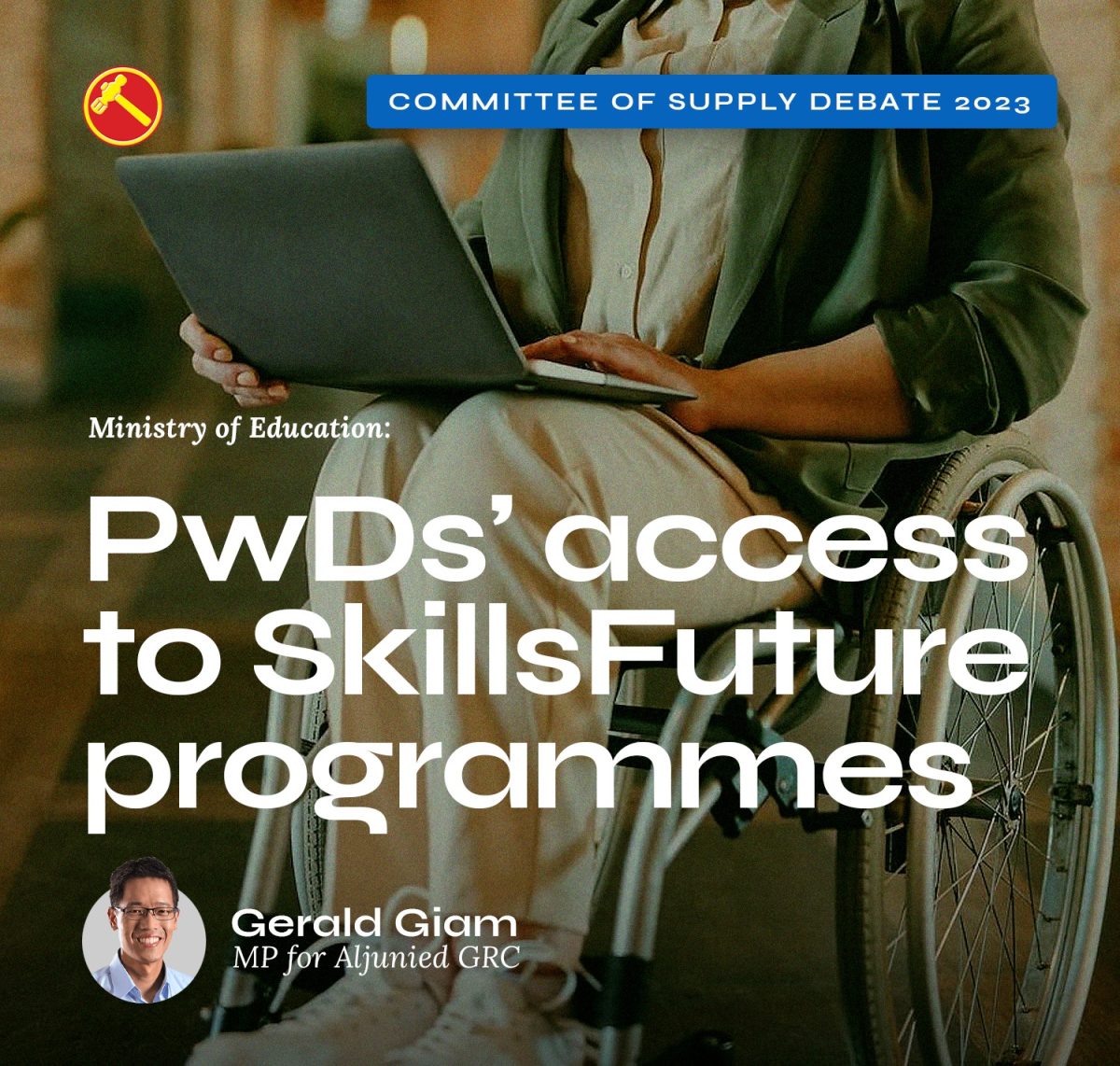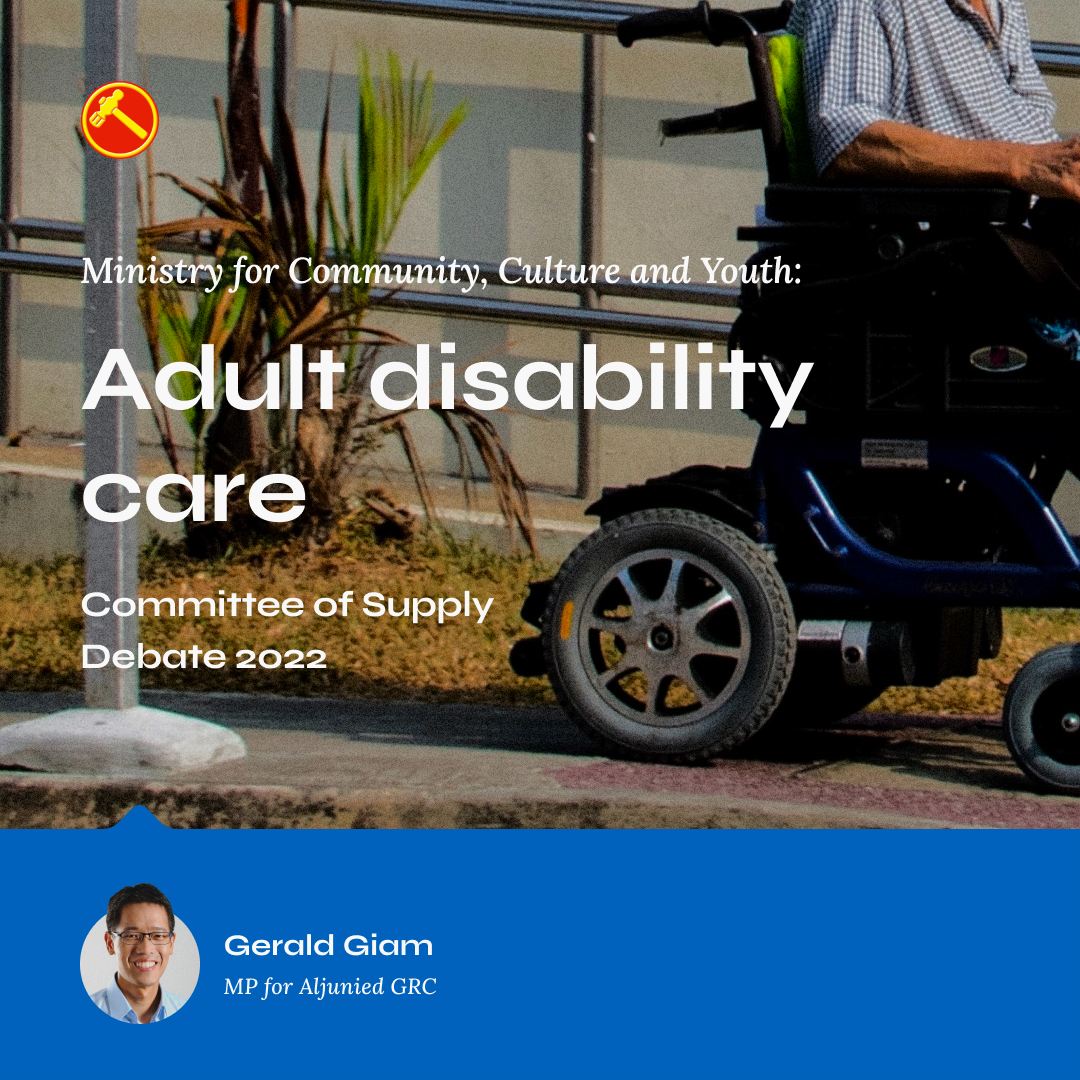About 78% of persons with disabilities (PwDs) have reported experiencing discrimination at the workplace, according to a survey last August by AWARE and Milieu Insight. Discrimination faced by PwDs can range from exploitation and denigration, to stereotyping and displaying patronising attitudes towards them.
The Government has announced its intention to enshrine the TAFEP Guidelines on Fair Employment Practices in a new workplace anti-discrimination law. It is important to ensure that this legislation provides sufficient protection for PwDs. To achieve this, the law should incorporate several key provisions, which have also been recommended by the Disabled People’s Association.
First, it needs a definition of disability that is inclusive of the entire disability population in Singapore.
Second, it should require employers to provide reasonable accommodations to PwD employees. A reasonable accommodation is a modification to a job or work environment that enables a qualified PwD to perform the essential functions of the job and have the same employment opportunities as their able-bodied colleagues, without imposing an unreasonable burden on the employer. Singapore ratified the UN Convention on the Rights of Persons with Disabilities (CRPD) a decade ago. Article 27 of the CRPD requires signatories to take appropriate steps, including legislation, to ensure that reasonable accommodation is provided to PwDs in the workplace. Examples of reasonable accommodations may include providing screen readers, installing ramps, offering flexible work arrangements, or conducting meetings online.
And third, the legislation must be enforceable in a timely manner and provide the necessary remedies and measures to prevent repeat offences.
Enshrining these provisions in the anti-discrimination legislation will ensure it is effective in preventing PwDs from being excluded from the workforce.
We need to change societal attitudes to foster inclusivity in the workplace for PwDs. Rather than viewing PwDs as beneficiaries of charity, we must recognise them as individuals and workers who possess equal rights and contribute valuable skills to the workforce.
Is the Ministry looking to do more to highlight the contributions to PwDs in the workplace?
___________
Committee of Supply Debate, Ministry of Manpower, 1 March 2023
Photo by SHVETS production on Pexels
